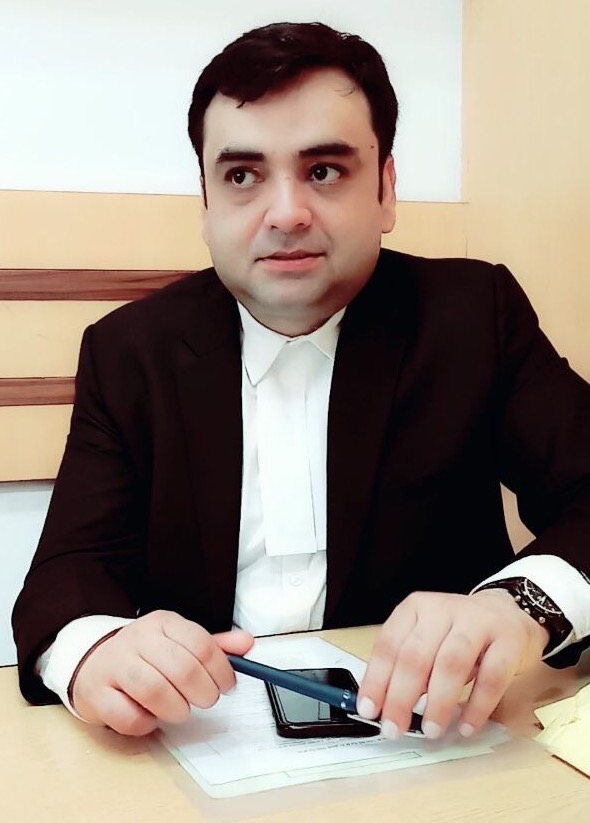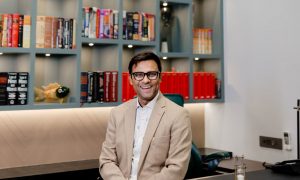This Interview has been published by Pragya Chandni and and The SuperLawyer Team

Sir, can you share with our listeners how your journey into the field of law began? What inspired you to pursue a career in law, and how did your early experiences shape your decision to become an Advocate on Record?
When I completed my law in the year 2023 I had decided to pursue my career as a lawyer so initially I started my practice from the Lucknow bench of the Allahabad high court in 2003 till 2006. After that in July 2005 I joined the chambers of senior Advocate late Shri R K Jain. To start your career in the field of law one has to have a good senior who acts as a mentor. Learning law is also similar to learning about life. If one has to practice in the Supreme Court, a lot of dedication is required.
Having completed your B.A LL.B (Hons.) from Aligarh Muslim University, could you highlight any specific aspects of your education that you believe significantly contributed to your success as an advocate? What motivated you to enroll in the Bar Council of Uttar Pradesh?
In order to practice law a student has to work on certain subjects such as IPC CPC CrPC, Evidence Act etc but most importantly one has to thoroughly read a newspaper. The law page is the most important. The availability of a large number of cases and overload on judiciary motivated me to enroll in the Bar Council.
You started your practice as an advocate in the High Court of Delhi and the Supreme Court of India. Can you share some memorable experiences from your early years, including the types of cases you handled and any significant challenges you faced?
To practice in Delhi High Court and the Supreme Court one has to be punctual and secondly good command over English language. As per my experience, judges in the Delhi High Court are very cooperative, and empathetic towards young lawyers who are at the learning stage. I have a lot of experience in civil cases because of the interest. The challenges include adapting with the new age technology and striving for perfection with each amendment.
Your profile mentions handling matters in various domains, such as criminal, service, civil, and constitutional law. How did you navigate the diverse legal landscape, and were there specific cases or areas that you found particularly intriguing or challenging?
It is never easy to choose a particular field. In my case, I was fortunate enough to gain experience in diverse types of laws and ultimately, I understood that all of them are equally important. As far as the challenges are concerned, civil law as well as criminal law pose a lot of challenges in college years.
You’ve worked with notable legal figures such as Late Mr. R.K. Jain and Mr. P.C. Hota, as well as with organizations like the Yash Birla Group and Karims Mughlai Foods. How did these collaborations influence your professional growth, and what lessons did you learn from working with such experienced individuals and entities?
All of them have had a great impact on my overall development. Professional growth is a slow and steady process, and it would be wrong to give all the credit to just one organisation. We keep learning through the way. The only lesson that keeps me going is that nothing in life comes easy, irrespective of the field of law chosen.
Your work experience includes associations with companies like Lemon Entertainment Ltd. and Shambhu Technology Services P. Ltd. Could you share insights into how your legal expertise was applied in the corporate context, and what unique challenges did you encounter in these roles?
Corporate law offers a plethora of opportunities. When I started practicing, it was never a goal to become a corporate lawyer. Based on the opportunity, I learned a lot about Contracts and other aspects of corporate law. As such, there have been no unique challenges but deep learning all the while. I then apply the learning in upcoming cases to solve them in a more comprehensive manner.
You’ve appeared in various tribunals, including the Central Administrative Tribunal and National Green Tribunal. How does advocacy in these forums differ from traditional court settings, and what skills do you consider crucial for success in specialized tribunals?
Contrary to popular opinion, the nature of work remains the same. It is just that the tribunals have a more streamlined process and the cases are disposed of quite expeditiously. Critical thinking skills will help in the long run, for people who wish to pursue a career on this path.
Drawing from your experiences and achievements, what advice would you give to law graduates who are just starting their careers? Are there particular principles or strategies that you believe are essential for success in the legal profession?
Everyone has their own fields of interest. My only advice would be to give your 200% in everything, even in petty cases. It will shape you as a lawyer and definitely make you a better thinker. There are no particular principles, since law is not just a subject but a way of life. All law graduates should try to imbibe everything they hear about the latest laws, for a successful career in any aspect.
Get in touch with Mohd Fuzail Khan-























